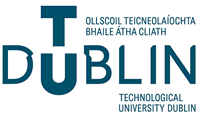About the Project
Science Without Borders Project
The exponential growth of user-generated content on the Web had deeply affected Finance. Twitter only is generating daily about 3 million messages, comments, suggestions tagged with financial related information, not counting large communities dedicated to finance only (such as Stock Twits, Yahoo! Finance Message Boards..). Since their inception, financial online communities have received a growing attention as an interesting source of market analysis, and they have gradually gained credibility. It is widely accepted that these communities do contain valuable information for financial trading, but the questions about the extent and quality of their predictive power is still unanswered.
Can these networks of largely informal investors predict the market? Is there an overall wisdom of the crowd in financial online communities? If not, is there at least a subset of users that constantly outperform the market? Can we identify these experts?
Evidence regarding the predictive value of financial social media is not definitive. Early studies on the topic go back to 2004, reporting how the impact of social media is statistically but not economically significant, while more recent results speak about an accuracy in the range of 70-80%.
Current evidence seems to suggest that there is no such thing as a “wisdom of the crowd” of financial online communities, and the overall community sentiment cannot be used for trading. However, much of the research potential remains untapped. Even if the community as a whole is too noisy to predict the market, it could be the case that a small subset of special users can do it. Can be such experts be identified? Are their comments enough to understand their real interests and strategies?
But it is not all about the text. The large majority of previous studies focus on sentiment analysis. However, users leave a large amount of footprints about their activities that goes beyond the text and complement it. It is important to consider their reputation, their social role and position in the community – as revealed by a Social Network Analysis –, their past performance, how they distribute their level activity, how non-text features correlate with market movements. Behaviour rather than sentiment could be the key feature to consider, and who said something could be much more important than what was said.
The study will pursue an interdisciplinary approach with a large set of candidate techniques to be explored, ranging from data-mining and predictive models, text mining to social network analysis (SNAs), reputation and trust systems, multi-agent systems, in collaboration with parallel disciplines such as socio-economics and behavioural finance.
The study has a strong experimental nature, and it is expected that it will generate a solid empirical evaluation in different financial markets and online communities. The research is also commercially viable and a number of academic and commercial partnerships have been already established.

 Continue with Facebook
Continue with Facebook

